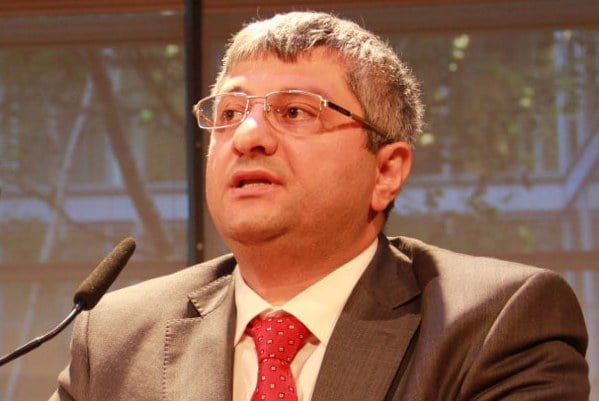Erdoğan’s parallel state (1)

Date posted: February 12, 2014
İHSAN YILMAZ
The Justice and Development Party’s (AKP) semi-official think tank the Foundation for Political, Economic and Social Research (SETA) has been championing the view that the Hizmet movement has formed a parallel state within the state.
It seems that they are distorting the original meaning of the term. Today, the term parallel state must be used to characterize Prime Minister Recep Tayyip Erdoğan’s own political design. The recent legal wiretappings that were recorded by a court order have confirmed once again that he has increasingly been building up his own parallel state, despite the fact that he was democratically elected and has been powerfully ruling the country. It is obvious that the constitutional powers given to him have become insufficient for his desires, ideological pretensions and sociopolitical aspirations.
The term “parallel state” was coined by American historian Robert Paxton in order to denote a collection of organizations, organs, associations or institutions that are state-like in their organization, management and structure, despite the fact that they are not officially part of the legitimate state or government. These parallel structures serve primarily to promote the prevailing political and social ideology of the state. Parallel states are, first, created by the executive branch of the government and second, are unofficially or illegitimately financed by the executive branch. The executive branch tries to create Althusserian apparatuses of the executive and not the state, since the state normally includes elements which the executive cannot control such as the judiciary and some autonomous official bodies such as the central bank, the Ombudsman’s office, etc.
In some extreme cases, after fully controlling the state, the executive dissolves the parallel state into the official one. The parallel state differs from the term “state within a state.” While a parallel state is usually endorsed by the prevailing political elite of a country, a “state within a state” refers to state-like institutions that operate without the consent, and even to the detriment, of the authority of an established state with their own secret laws and court systems. Parallel states can be found in totalitarian or semi-totalitarian countries, such as Nazi Germany, fascist Italy, the Soviet Union, Iran and North Korea, and in youth organizations, leisure organizations, work/labor collectives, unions and militias.
Erdoğan is now creating his own parallel state in the sense that the judiciary, law enforcement officers, the Court of Accounts, intelligence agencies, the police force, etc. are some state bodies that must be able to monitor the activities of everyone in the country, including elected politicians, so that illegality and corruption do not occur. Nevertheless, he has been reducing the powers of all these authorities either de jure or de facto so that they cannot effectively uphold the rule of law. For instance, he has been trying to change the law so that prosecutors will not be able to covertly chase down corrupt politicians without letting the politicians know!
The recent Internet ban legislation is similar. Instead of giving independent judiciary the authority to ban website content that is deemed illegal, obscene, attacking personal lives, etc., he wants to give it to one of his bureaucrats who will be able to close down these websites without any court orders. This means that he can censor any criticism on the basis of being insulted, etc. He is effectively transferring the power of the judiciary onto himself.
In my next piece, I will continue with this discussion to show how Erdoğan has been creating a parallel media, economy, his own religious community and even laws by using the public’s money and power of the executive.
Source: Todays Zaman , February 12, 2014
























